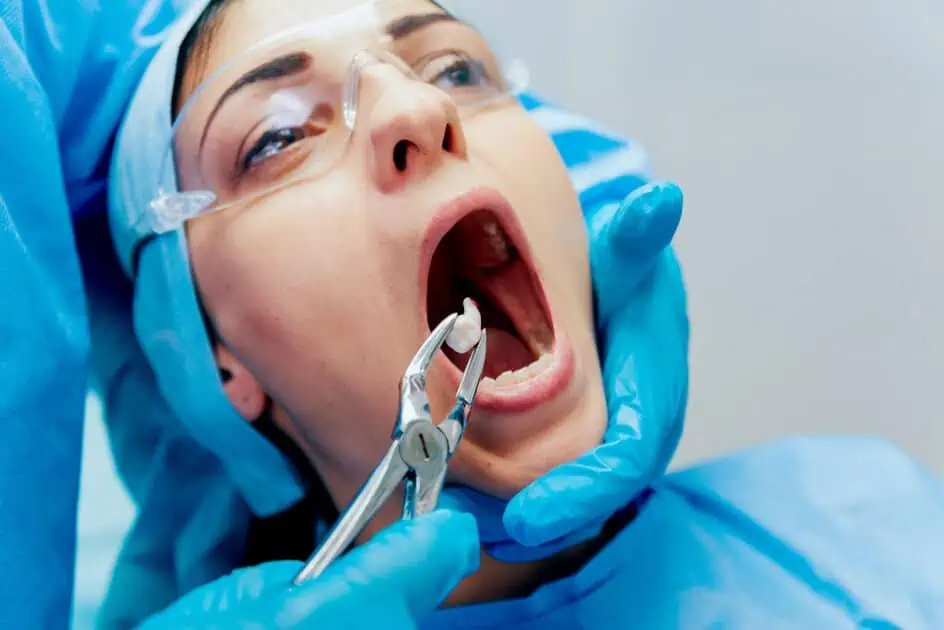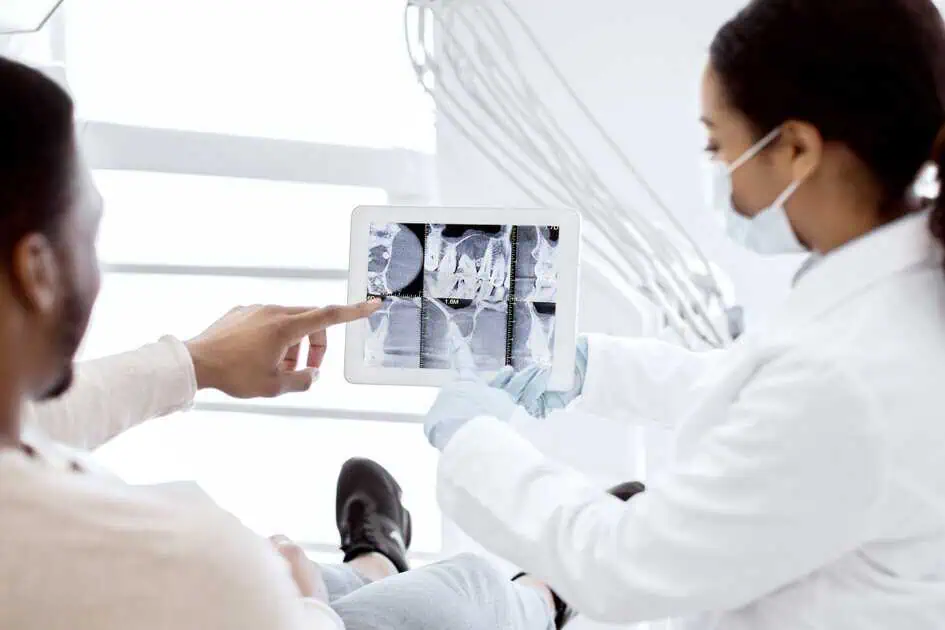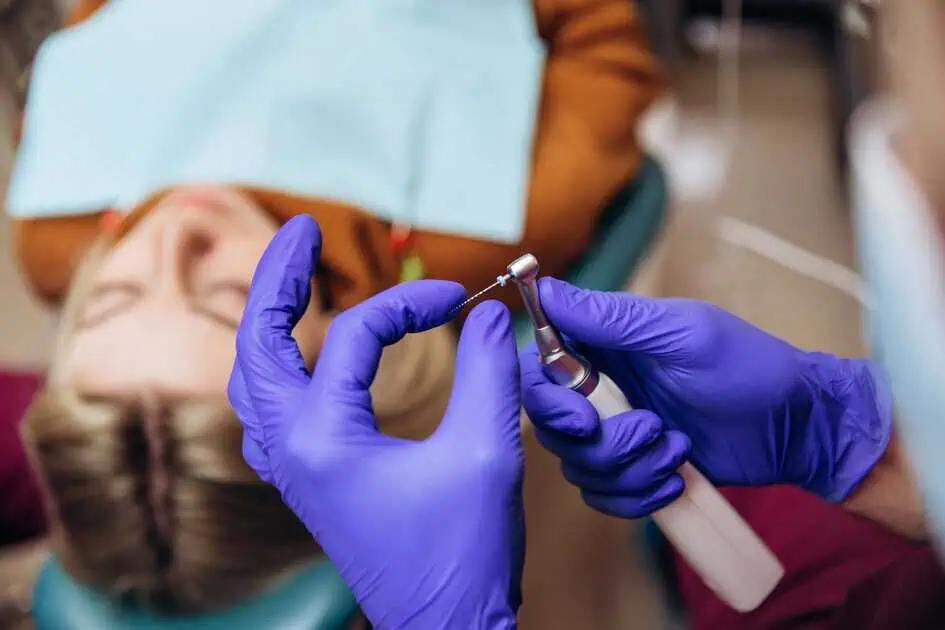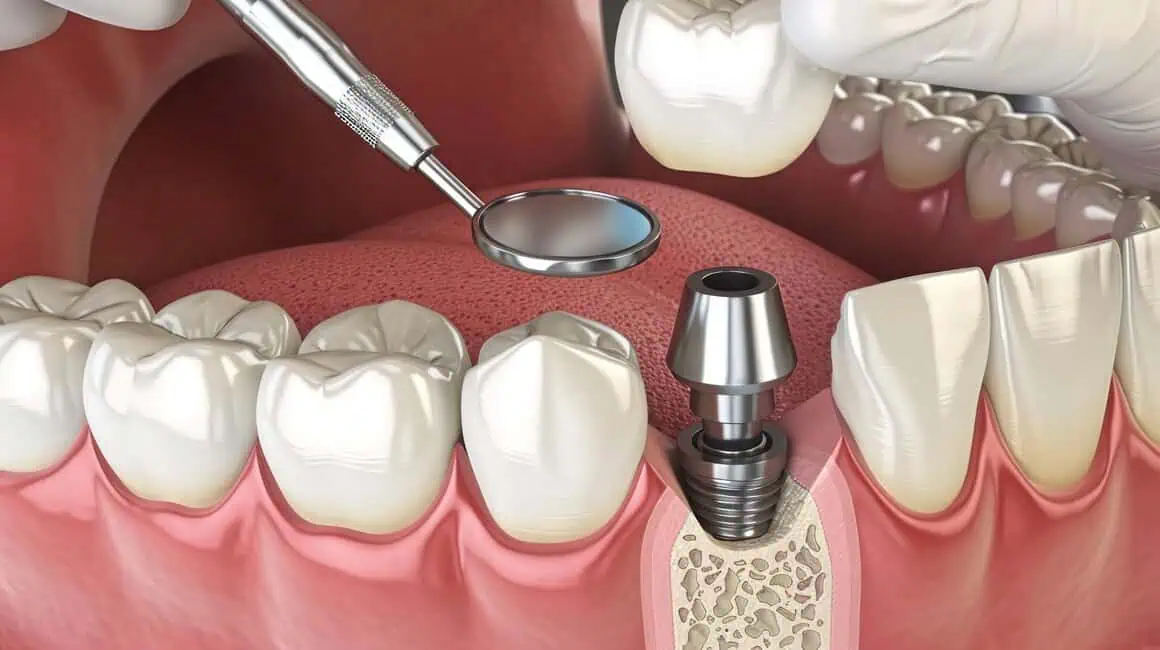Table of Contents
If you need an oral biopsy, you likely have a concerning growth or abnormality in your mouth. Oral biopsies are medical procedures that involve taking a small sample of tissue for lab analysis. This analysis can help identify the cause of the problem, whether it’s oral cancer or another condition. Understanding what to expect during an oral biopsy can help ease any anxieties about the process. By being informed, you can work closely with your dentist to manage any oral health issues, get the proper treatment, and define biopsy.
What is an Oral Biopsy?
An oral biopsy is a medical approach where a small tissue sample is removed from the mouth for laboratory analysis. Dentists or oral surgeons perform this test when they notice an abnormality or growth in the mouth that requires further examination.
The purpose of an oral biopsy is to determine the cause of the abnormal tissue. This could involve ruling out or confirming the presence of oral cancer or other oral health conditions. By analyzing the tissue sample, medical professionals can obtain a precise diagnosis and devise an appropriate treatment plan.
The biopsy procedure involves numbing the area and carefully removing a small piece of the abnormal tissue. The sample is then sent to a lab, where it can be closely examined under a microscope. Once the results are available, the dentist can discuss them with the patient and determine the next steps.
When is an Oral Biopsy Necessary?
Dentists may recommend an oral biopsy if they notice any of the following:
- Mouth lesions that won’t heal: Sores, ulcers, or other mouth lesions that persist for more than two weeks may require further investigation through a biopsy.
- Growths or bumps inside the mouth: Any unexplained lumps, bumps, or swollen areas within the oral cavity should be biopsied to determine the cause.
- Red or white patches: Discolored areas on the tongue, gums, or inside of the cheeks could indicate the presence of precancerous changes and warrant a biopsy.
- Loose permanent teeth: Unexplained loosening of otherwise healthy permanent teeth may indicate an underlying condition requiring diagnosis through a biopsy.
- Consistent pain: Persistent pain or discomfort in the mouth, ears, or while swallowing could have an underlying cause that needs to be identified.
If you experience any of these symptoms, it’s essential to schedule an appointment with your dentist right away. Prompt evaluation and diagnosis through an oral biopsy can be crucial for detecting and treating severe conditions like oral cancer in the earliest stages.
The Oral Biopsy Procedure
If your dentist determines that an oral biopsy is necessary, they will guide you through the procedure steps. Here’s what you can expect:
Preparation
Before the biopsy, the treatment area will be numbed with a local anesthetic to guarantee your comfort during the procedure. Your dentist will also clean the area to prevent infection.
How Is A Biopsy Performed?
Once the area is numb, your dentist will use a small instrument to remove a tiny sample of the abnormal tissue. Thanks to the numbing agent, this process only takes a few minutes and is generally not very painful.
After the sample is taken, it will be dispatched to a laboratory for analysis. This is a crucial step, as the lab results will provide your dentist with the information needed to determine the cause of the abnormality and develop an appropriate treatment plan.
Post-Procedure Care
Following the biopsy, your dentist may place a small suture or dressing over the biopsy site to promote healing. You may experience some minor bleeding, swelling, or discomfort, but these side effects are generally mild and should subside within a few days.
Your dentist will equip you with specific aftercare instructions, including avoiding certain foods, using cold compresses, and taking over-the-counter pain medication as needed. Follow these instructions carefully to guarantee adequate healing and prevent any complications.
Oral Hygiene After Biopsy
After undergoing an oral biopsy, it’s essential to take extra care of your oral hygiene to promote healing and prevent complications. Here are some tips to follow:
- Avoid Irritation: Steer clear of any foods, beverages, or activities that could irritate the biopsy site. This includes:
- Spicy, acidic, or scorching foods and drinks
- Crunchy or hard foods that could rub against the area
- Vigorous brushing or flossing near the biopsy site
- Gentle Cleaning: Carefully brush and floss your teeth, being mindful to avoid the biopsy area. Use a soft-bristled toothbrush and gentle, circular motions.
- Rinse with Care: Your dentist may recommend using a saltwater rinse or antimicrobial mouthwash to keep the area clean. Swish the solution gently, avoiding vigorous swishing.
- Apply Cold Compresses: Placing a cold compress on the outside of your cheek can help reduce swelling and discomfort. Do this for 10-15 minutes a few times per day.
- Take Medication as Directed: Follow your dentist’s instructions for any pain medication or antibiotics they’ve prescribed to aid in your recovery.
- Attend Follow-Up Appointments: Keep all scheduled appointments with your dentist so
They can monitor the healing process and ensure there are no complications.
Following these oral hygiene tips can help facilitate healing and prevent any issues after your oral biopsy procedure.
Takeaway
If you have any concerning symptoms or abnormalities in your mouth, don’t delay in getting them checked out. The team at Solomon Family Dentistry is highly experienced in performing oral biopsies and can provide you with the answers and care you need.
At Solomon Family Dentistry, your oral health is their top priority. Their skilled dentists use the latest techniques to ensure your biopsy procedure is as comfortable and efficient as possible. They’ll walk you through every step, addressing any questions or concerns you may have along the way.
Don’t wait for a minor issue to potentially develop into something more serious. Contact or visit Solomon Family Dentistry today for a consultation. With their expertise, you can get the answers you need and take the appropriate next steps for your oral health. Your peace of mind is just a phone call away.





